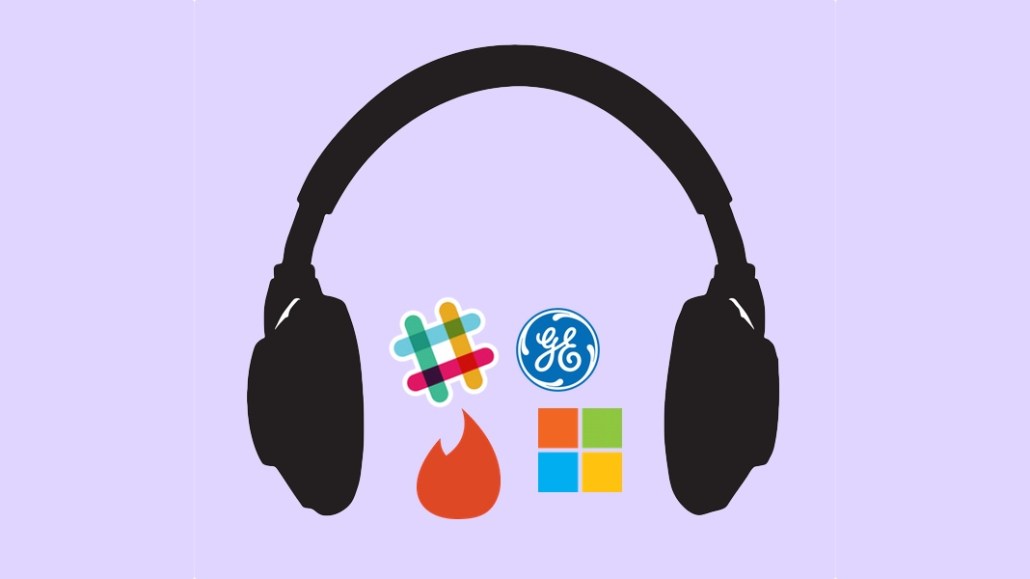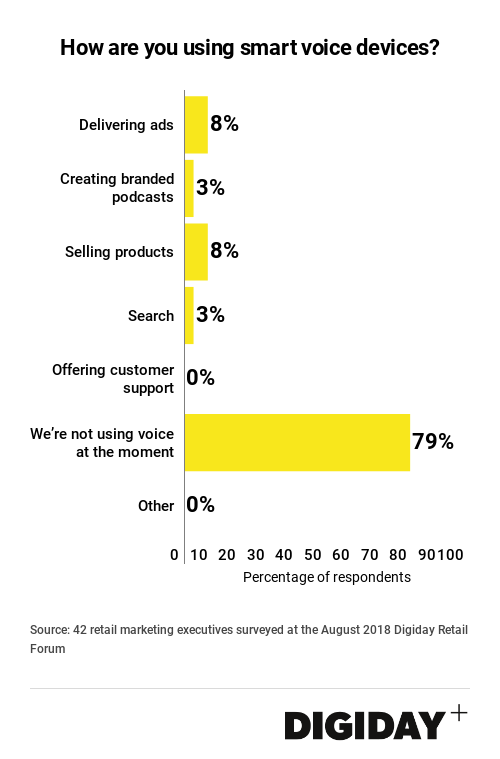Secure your place at the Digiday Media Buying Summit in Nashville, March 2-4
Digiday Research: Voice marketing is still nascent among retail marketers

This research is based on unique data collected from our proprietary audience of publisher, agency, brand and tech insiders. It’s available to Digiday+ members. More from the series →
Voice devices are quickly becoming ubiquitous in U.S. households, but most retail marketers aren’t jumping on the bandwagon just yet.
Nearly 20 percent of U.S. adults now have access to a smart speaker, and that number is expected to grow rapidly in the coming years. But despite the hype surrounding their potential most retailers aren’t currently using voice devices for marketing or commerce, according to new Digiday research.
Of the retail marketing executives Digiday quizzed with at the Digiday Retail Forum last month, 79 percent said they’ve yet to use voice devices in any capacity.
For those who have the most common use cases are to deliver ads and to sell products, but each of those are only being done by 8 percent of retailers. In general marketers have placed a low priority on voice marketing with many viewing it primarily as a way to collect consumer data.

Amazon, a major player in the voice space thanks to its Alexa-powered devices, is tempering expectations for voice search. The e-commerce giant is still figuring out how to prioritize between paid and organic results in search requests.
Other areas like branded podcasts are unlikely to ever gain mainstream adoption by retail marketers because of their high costs, generally at least $500,000. Some retailers in the Digiday survey have experimented with them, but one of the main hurdles with branded podcasts or podcasts in general is that measurement standards are still in their infancy.
Other brands are gravitating instead to branded “skills” for voice-activated devices. Lego is testing out creating storytelling Skills on Amazon, for example.
More in Marketing

Thrive Market’s Amina Pasha believes brands that focus on trust will win in an AI-first world
Amina Pasha, CMO at Thrive Market, believes building trust can help brands differentiate themselves.

Despite flight to fame, celeb talent isn’t as sure a bet as CMOs think
Brands are leaning more heavily on celebrity talent in advertising. Marketers see guaranteed wins in working with big names, but there are hidden risks.

With AI backlash building, marketers reconsider their approach
With AI hype giving way to skepticism, advertisers are reassessing how the technology fits into their workflows and brand positioning.





